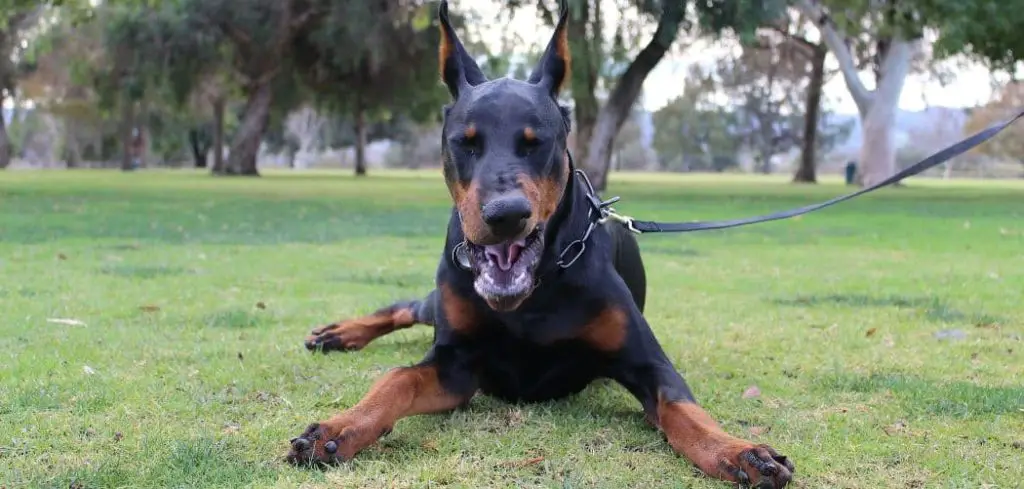When a dog suddenly starts shaking and behaving aggressively, it’s alarming and often confusing for owners. These behaviors are typically signs of discomfort, fear, or a deeper health concern.
While occasional agitation is normal, combining it with tremors can point to something serious that needs immediate attention.
We outline the common causes of dog shaking and aggression, what you can do at home, and when to seek veterinary help.
Table of Contents
Why Is My Dog Shaking and Aggressive — Why It Happens
Dogs may shake and act aggressively when they are in pain, fearful, anxious, or suffering from neurological or hormonal imbalances. These symptoms are the dog’s way of expressing distress—physically or emotionally—and often indicate an underlying issue that shouldn’t be ignored.

Dog Shaking and Aggressive Behavior: Common Causes
Pain or Injury
One of the most common reasons dogs lash out and shake is because they are in pain.
Painful conditions—like arthritis, dental disease, injury, or abdominal discomfort—can make even a gentle dog snap or growl when touched.
Trembling often accompanies severe discomfort as the dog tries to cope physically.
Dogs in pain may avoid contact, growl when approached, or suddenly become protective of their space.
Fear or Anxiety
Fear-based aggression is triggered when a dog feels threatened or trapped.
Shaking can occur due to adrenaline release, and aggression follows if the dog thinks they need to defend themselves.
Common triggers include loud noises, unfamiliar people, or past trauma.
Dogs may also show a crouched posture, pinned ears, or wide eyes before lashing out.
Related: Dog shaking and not eating (Causes and what to do)
Resource Guarding
If your dog growls, snaps, or shakes when approached near food, toys, or a favorite person, it may be resource guarding.
The shaking here is often due to stress or excitement.
This type of behavior requires behavioral modification and sometimes professional help to resolve safely.
Neurological Disorders
Neurological issues can alter behavior and cause tremors or increased aggression.
Conditions like seizures, brain tumors, or cognitive dysfunction can make dogs confused or irritable.
They may lash out during post-seizure recovery or when disoriented.
Veterinary exams, including neurological assessments or imaging, are essential to determine the cause.
Hormonal Imbalances or Illness
Conditions like hypothyroidism or Cushing’s disease can lead to behavioral changes, irritability, and trembling.
These diseases affect mood, energy levels, and how the dog reacts to stress.
Unexplained behavior changes, especially when combined with other symptoms like lethargy or hair loss, warrant bloodwork and further testing.
What to Do If Your Dog Is Shaking and Aggressive
Stay calm and avoid sudden movements. Do not attempt to restrain or scold your dog while they’re in distress.
Remove yourself and others from the situation to prevent bites or escalation.
Once the dog has calmed, note any patterns or triggers that led to the behavior.
Avoid handling or touching the dog until they appear calm, and speak gently without forcing interaction.
Contact your vet to discuss the symptoms, especially if this is new or worsening behavior.
When to Call or Visit Your Vet
Reach out to your veterinarian if your dog:
Becomes aggressive without an obvious trigger
Is shaking frequently or appears disoriented
Has a sudden change in temperament or energy
Growls or snaps when touched in specific areas
Shows signs of illness such as vomiting, loss of appetite, or unsteadiness
A medical evaluation will help determine if your dog’s aggression and shaking stem from pain, fear, or a health condition.
Read more: Dog Shaking and Panting In Car (What it means)
Key Takeaway
If your dog is both shaking and aggressive, it’s a red flag that something deeper is going on—whether it’s fear, pain, illness, or neurological changes.
Prioritize safety first, then contact your vet to uncover and address the root of the behavior.
With the right care and support, many dogs can recover and return to their usual loving selves.
